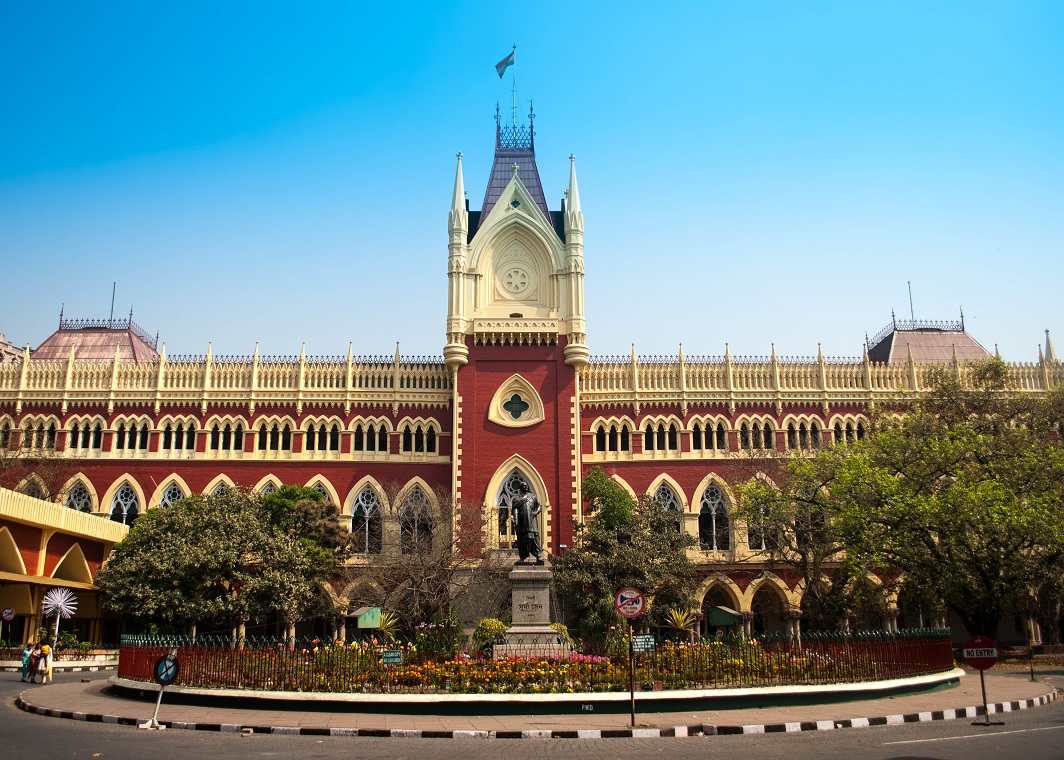The Calcutta High Court has granted bail to a man who was found with 153 kg ganja in a car and had filed a plea seeking suspension of sentence and bail during the pendency of his appeal. (Raju Jaiswal v State – CRA. NO. 262/2020)
The appellant was convicted and sentenced to 10 years’ rigorous imprisonment and Rs 1 lakh fine by a trial court for the commission of offence under Sections 20(b)(ii)(C)/29/25 of the Narcotic Drugs and Psychotropic Substances Act, 1985.
The High Court noted after the perusal of the Judgment passed by the trial court that the only basis on which the applicant appears to have been held guilty was only on the basis of his statement recorded under Section 313 of the Code of Criminal Procedure to the effect that the concerned Scorpio car is jointly owned by him. “Whether or not that would suffice for holding him guilty for abetment or criminal conspiracy to commit an offence under Section 20(b)(ii)(C) of the NDPS Act is, in our opinion, a highly arguable point,” the High Court further noted in its order.
The division bench of Chief Justice Thottathil B. Radhakrishnan and Justice Arijit Banerjee held, “On the whole, we are satisfied that the appeal, in its final consideration, would call for adjudication as to the sustainability of the finding of the applicant’s guilt and consequential order of conviction and sentence. That would naturally be based on the appreciation of the legal evidence on record and other facts and factors which may be relevant at that stage. We are of the view that the applicant has a reasonably arguable case for acquittal at the final hearing of the appeal.”
The bench also noticed “that the applicant was on bail throughout the trial. It is nobody’s case that the applicant jumped the bail or breached any condition of bail.”
The Counsel for the appellant contended before the High Court –
1. that the vehicle from which the commercial quantity of ganja was seized, is jointly owned by the appellant and his mother, Rashmoni Devi, who is one of the other accused persons.
2. Three out of four accused persons including the appellant mother were in the vehicle when the seizure was made.
3. The applicant was not present at the scene.
4. No recovery was made from the applicant. The applicant has been linked in only under Section 29 of the NDPS Act for abetment and criminal conspiracy.
Whereas the Counsel for the State vehemently opposed and argued that the complicity and culpability of the applicant/accused has been proved to the hilt on the basis of the material evidence. He said that admittedly, the applicant is co-owner of the vehicle from which 153 kg ganja was seized and the evidence on record clearly establishes that the applicant was a part of the criminal conspiracy to commit the offence for which he stands convicted.
The High Court has allowed the application under section 389(1) CrPc, filed by the applicant seeking bail pending application for suspension of sentence.
The High Court further held, “The applicant, Raju Jaiswal, shall be released on bail upon furnishing a bond of Rs 3,00,000 with three solvent sureties of Rs 50,000 each, one of whom must be local, to the satisfaction of learned Chief Metropolitan Magistrate, Calcutta, on condition that the appellant shall appear before the convicting court once in a month until further orders and shall be personally present or be represented before this Court when the appeal is taken up for hearing and on further condition that the applicant shall not involve himself in any activity which may amount to an offence punishable under the law.”
RELEVANT LAWS –
Twin conditions of BAIL enshrined under SECTION 37 NDPS ACT , 1985 the Public Prosecutor has been given an opportunity to oppose the application for such release, and where the Public Prosecutor opposes the application, the court is satisfied that there are reasonable grounds for believing that he is not guilty of such offence and that he is not likely to commit any offence while on bail.
Section 441 CRPC – BONDS OF ACCUSED AND SECURITIES
(1) Before any person is released on bail or released on his own bond, a bond for such sum of money as the police officer or court, as the case may be, thinks sufficient shall be executed by such person, and, when he is released on bail, by one or more sufficient sureties conditioned that such person shall attend at the time and place mentioned in the bond, and shall continue so to attend until otherwise directed by the police officer or court, as the case may be.
(2) Where any condition is imposed for the release of any person on bail, the bond shall also contain that condition.
(3) If the case so requires, the bond shall also bind the person released on bail to appear when called upon at the High Court, Court of Session or other court to answer the charge.
Read Also: SILF to celebrate 60 years of Advocates Act, 1961 tomorrow
(4) For the purpose of determining whether the sureties are fit or sufficient, the court may accept affidavits in proof of the facts contained therein relating to the sufficiency or fitness of the sureties, or, if it considers necessary, may either hold an inquiry itself or cause an inquiry to be made by a Magistrate subordinate to the court, as to such sufficiency or fitness.
calcutta-ndps-suspension-of-sentence-and-bail

